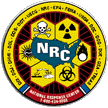Quick Finder
- EPA South Central home
- Companion animals
- EPA's mission
- Mobile lab
- Response managers
- EPA Southeast home
- Debris
- Family
- Photos
- Sell services
- ASPECT
- Decontamination
- Hazardous spills
- Poison control
- Useful links
- Audio files
- Drinking water
- Infrared camera
- Radiation
- Volunteers
- Brochures
- Equipment
- Labs
- Response
- Wells
How to Help
Report hazardous substance releases or oil spills

On average, the federal government receives 12 reports of a hazardous substance release every day. In many cases, the person or company responsible for the release discovers and reports it. In other cases, a local police officer or firefighter who is trained in recognizing and responding to hazardous substance threats discovers the release.
Occasionally, hazardous substance releases are discovered by people as they go about their day-to-day activities.
Call the National Response Center at 1-800-424-8802 if you suspect a hazardous spill has occurred in your area.
Safe response to hazardous substance releases requires the expertise and training of professionals. It is important to realize that non-professionals who attempt to respond to these incidents may endanger themselves and may become part of the problem, not part of the solution.
When a hazardous substance release is reported, the federal government begins established procedures for safely investigating and responding to the threat.
Audio | National Response System Notification Process Brochure
Sell services or supplies
If you are a vendor and want to offer recovery assistance, please contact the EPA Environmental Technology Council (ETC). The ETC, working with EPA’s Offices of Acquisition Management, Research and Development, and the Environmental Technology Verification Program, ensures vendors and their technologies are routed to the appropriate contact.
Please contact Celia Vaughn at 202-564-1047 / vaughn.celia@epa.gov.
Audio | NEPA Technology Programs: Engaging the Marketplace Brochure (May 2007)
Volunteer to help
Immediately after a disaster, many people want to volunteer in various capacities. The most effective way to help a community’s disaster recovery as a volunteer is to prepare ahead of time. Contact your local Red Cross or other disaster-response organization to receive training so you will be ready to help should an emergency occur. Be prepared to be as self-sufficient as possible so as not to place an additional burden on the affected area’s resources. Finally, consider helping not only in the immediate aftermath of an event, but also during the long-term recovery.
Please visit these links for more information on volunteering:
Audio | Safety awareness for responders to hurricanes: Protect yourself while helping others brochure
|
|
|
Alerts |
Use caution when entering damaged homes and buildings. Bring unsafe drinking water to a rolling boil for one minute. |
|
Useful Resources |
|
Poison center Finding family Companion animals Volunteering Audio files Brochures Photos |
|
Related Information from State and Federal Agencies |
|
Find your state's emergency management, environmental and health agencies Preparing:Before a hurricane and Hurricane preparedness Prepare for a hurricane National Hurricane Center Recovering: Recovering from disasters. After the hurricane |
![[logo] US EPA](https://webarchive.library.unt.edu/eot2008/20081109025754im_/http://www.epa.gov/epafiles/images/logo_epaseal.gif)
